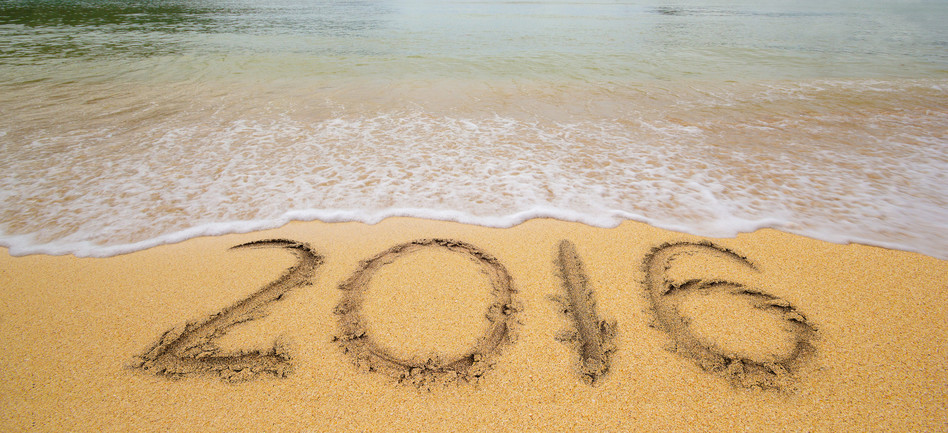Hau’oli Makahiki Hou! (That’s Happy New Year in Hawaiian for those of you reading on the mainland). Here is a 2016 update on important numbers used in Estate Planning and Medicaid Planning in Hawaii.
How much money and property can a person have at death without paying estate taxes? At the end of 2012, Congress passed a law making the exemption from estate taxes $5,000,000 (adjusted for inflation) without a built in expiration date. Taking into account inflation, the actual amount exempt from estate tax for 2016 is $5,450,000. The Hawaii Estate Tax law was previously amended to follow the Federal Estate Tax law so there is also a $5,450,000 exemption from Hawaii estate tax. (In other w ords, if you pass away in 2016 with less than $5,450,000, and you didn’t already use up any of your exemption by making gifts during your life, you will not owe any Federal or Hawaii State Estate Tax ).
How much can a person give away without paying a gift tax? Just as in 2015, you can give $14,000 this year to each person without having to report it to the IRS. You can give any amount to a husband or wife who is a U.S. citizen without reporting to the IRS. If you give more than $14,000 to any person in one year, then the amount over $14,000 is a “taxable gift.” You have to file a gift tax return to report the gift, but for 2016, you can give up to $5,450,000 of taxable gifts in your lifetime without paying a gift tax. For the wealthy, this opens up a lot of opportunities to give assets without tax or to protect assets from creditors. If you give assets away, there will probably be a Medicaid penalty if you need nursing home care. Do not give away assets (not even your home or $14,000 per person) without expert advice about the effect of both gift tax laws and Medicaid laws.
How much in assets can a husband and wife have and still qualify for Medicaid to pay nursing home costs for one of them? A husband and wife together can have $121,220 in assets and still have Medicaid pay for the nursing home costs for one of them. (The amount hasn’t changed from last year.) This $121,220 is in addition to the following exempt assets, which the government will not count: Necessities such as clothing, furniture and appliances; motor vehicles; funeral or burial plans and a burial plot for each family member; one wedding ring and one engagement ring, and up to $828,000 of equity in a home.
If a person is not married, or if both husband and wife need nursing home help, how much in assets can each have and still qualify for Medicaid for nursing home costs? A single person can have $2,000; for a married couple, they can each have $2,000.
If you give away assets to your children, how long do you have to wait before you can qualify for Medicaid for nursing home costs without a penalty? The answer is 5 years. However, this does not mean that you have to wait 5 years before getting Medicaid help. There are ways to reduce or eliminate the penalty period even before 5 years has passed. We can help families to save their remaining money and/or the value of their home from nursing home costs and Medicaid liens without spending down everything—even at the last minute as the client is going into a nursing home without having planned ahead financially.
If a person qualifies for Medicaid for nursing home costs, how much of the family income can the spouse keep? The spouse who is not in the nursing home (“community spouse”) can keep all of his or her own income (social security checks, pension checks, etc.). If the income of the community spouse is less than $2,980 per month, the community spouse can also be given some of the income of the one in the nursing home to bring the community spouse’s income up to $2,980. The one who is in the nursing home has to use the rest of his or her income towards nursing home costs, except for $50 a month, which can be kept.
When is a probate necessary? Probate is necessary in Hawaii if a person dies with real estate of any value, or other assets worth over $100,000, which are not in a revocable living trust, not in joint names with right of survivorship, and do not name a beneficiary.
© OKURA & ASSOCIATES, 2016
Honolulu Office (808) 593-8885
Hilo Office (808) 935-3344
Ethan R. Okura received his Doctor of Jurisprudence Degree from Columbia University in 2002. He specializes in Estate Planning to protect assets from nursing home costs, probate, estate taxes, and creditors.
________________________________________________________________________
This column is for general information only. The facts of your case may change the advice given. Do not rely on the information in this column without consulting an estate planning specialist.

